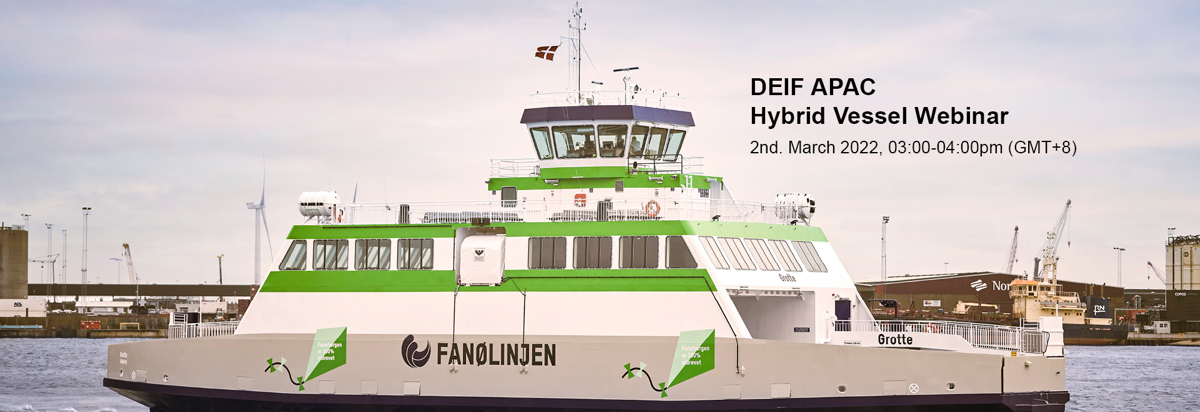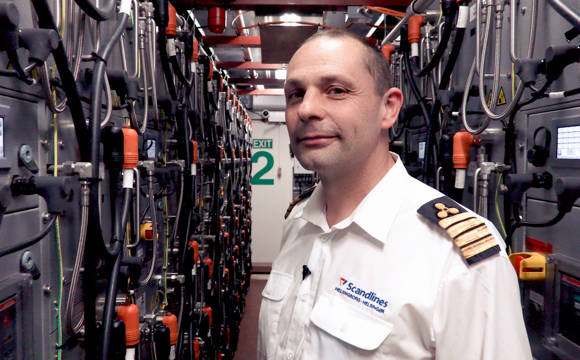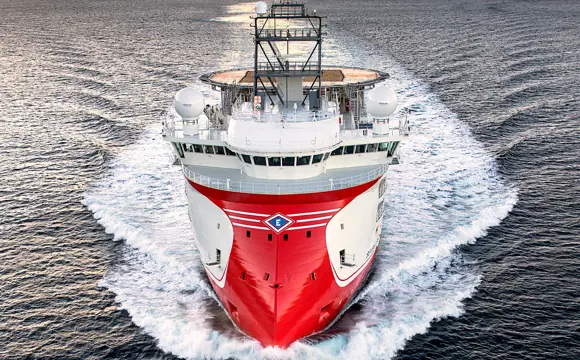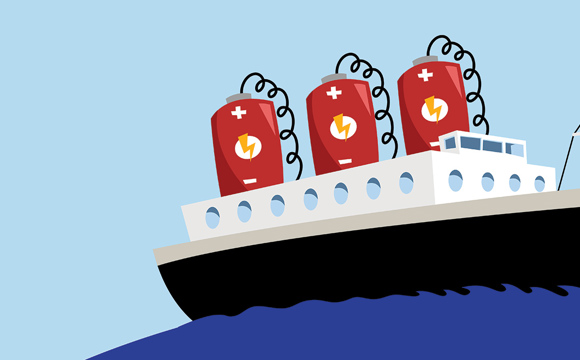Significant savings with automated power management system and hybrid energy storage
Contract compliance and HES integration with upgraded Delomatic 4 power management system
To ensure continued compliance with customer contracts, Norwegian shipping company Eidesvik upgraded the Delomatic 4 Power management System (PMS) on the IMR vessel Seven Viking to handle a new onboard HES (Hybrid Energy Storage) system. Eidesvik are set to achieve significant fuel and genset running hour reductions, and the crews are happy with the solution.
When one of your biggest customers changes the terms of your contract, you need to ensure continued compliance if you want to keep that customer. This was exactly what happened to Norwegian shipping company Eidesvik in 2018. In order to reduce fuel consumption and carbon emissions from its offshore activities, oil company Equinor introduced a requirement that vendor IMRs must have an onboard HES (Hybrid Energy Storage) system in order to qualify for a particular Frame Contract.
Accordingly, i-Tech 7, Subsea 7’s Life of Field business unit and Eidesvik needed to upgrade the Seven Viking, an IMR vessel operating in the North Sea. “It was a requirement in the customer contract that the ship had to have a hybrid power source on board”, says Alf Magne Simonsen, Project Manager at Eidesvik.
Headquartered in Langevåg, Norway, Eidesvik owns and operates ships within the business areas Supply, Seismic, Offshore Wind and Subsea, primarily on the Norwegian continental shelf. Eidesvik owns and operates 22 vessels; the Seven Viking is currently chartered to i-Tech 7, for carrying out subsea life of field operations. Both companies deliver services to Equinor and cooperated on bringing the Seven Viking in line with the updated contract terms.
Upgrading the Delomatic 4 for HES management
Built at the Ulstein Verft shipyards in Norway in 2012, the Seven Viking is fitted with an onboard Delomatic 4 PMS from DEIF. The system is capable of all conventional PMS operations while also offering blackout prevention and FMEA requirements for DP-2 operation with closed bus. Following the installation of the new HES system, the Delomatic 4 needed to be upgraded in order to manage and control the hybrid power solution.
The Delomatic 4 system was extended with the necessary hardware and software to comply with the requirements of the HES system. The number of controllers was increased from 4 to 7. The software was pre-tested at DEIF simulation facilities after which commissioning was completed by a skilled DEIF engineer with the necessary know-how to achieve the DNV GL certificate for the Battery Power class notation.
Training and competence are crucial
Alf Magne Simonsen emphasises that successfully completing the upgrade project was not just a question of technology. “Eidesvik were early adopters of battery hybrid solutions; we’re known for innovation”, he says. “All the same, the key to success with the upgrade was the competence of the crew because the technology is quite new.”
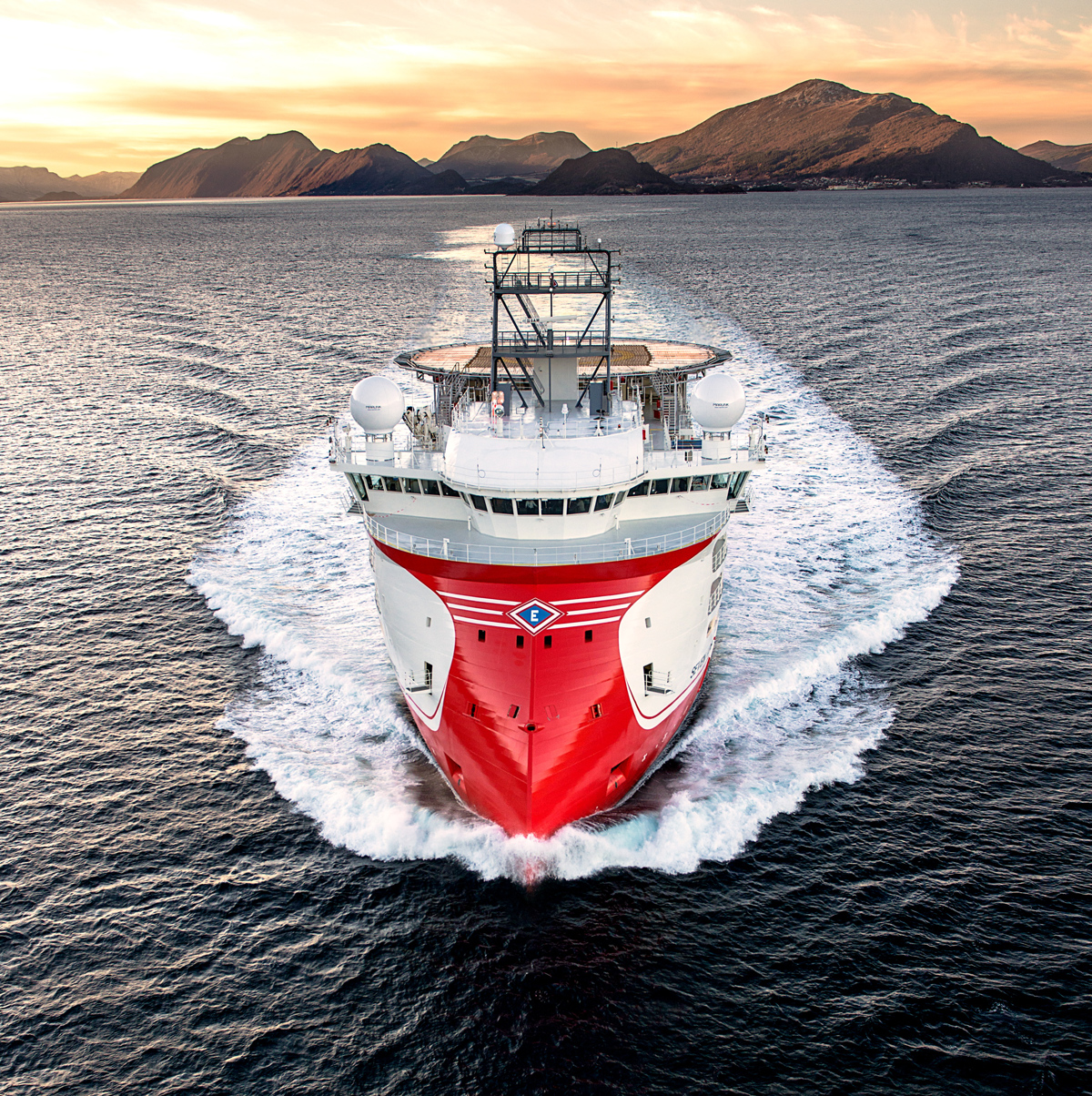
Without the know-how required, crews will not be able to take full advantage of the features offered by advanced systems such as the upgraded Delomatic 4, and they will not be able to reap the financial and environmental benefits the system can deliver. When DEIF delivered, installed, and commissioned the Delomatic 4 upgrade, training of key crew members was therefore a very important part of the package.

“Even though we have only used the battery hybrid solution for a short while, we estimate that we will be able to save 12-13% on fuel consumption, corresponding to more than 3,000 ton CO2-e every year. Furthermore, we expect to reduce genset operating hours by approx. 35%”
Alf Magne Simonsen
Project Manager, Eidesvik
Significant savings and happy crews
In early January 2019, the upgraded Seven Viking was put to sea, carrying out operations for i-Tech 7. Although the vessel has not been operational for long with the upgraded PMS and HES solution, Alf Magne Simonsen estimates that Eidesvik are set to achieve significant savings on fuel and genset running hours.
“Even though we have only used the battery hybrid solution for a short while, we estimate that we will be able to save 12-13% on fuel consumption, corresponding to more than 3,000 ton CO2-e every year. Furthermore, we expect to reduce genset operating hours by approx. 35%”, he says. The reduction of genset running hours is possible because the Seven Viking will often be able to run on one engine instead of two in DP-2 operations, and sometimes two engines instead of four.
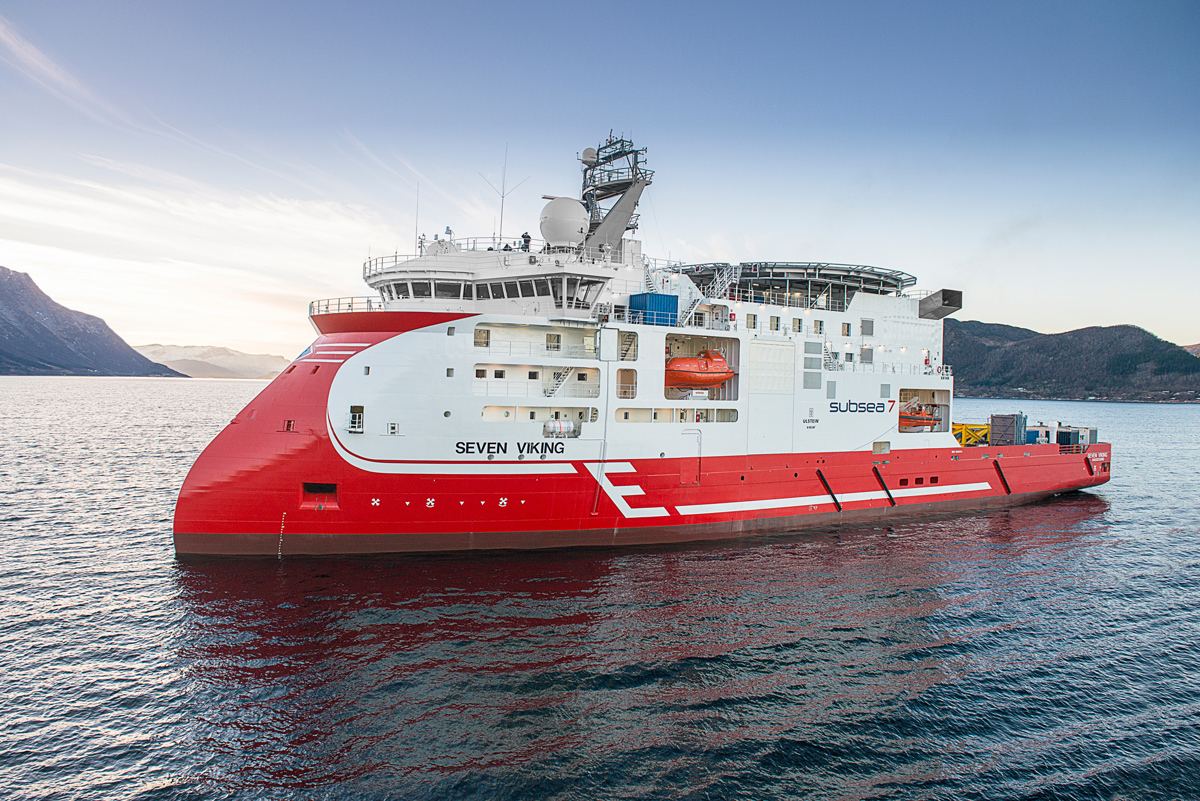
Equally importantly, the people who use the system every day are satisfied. “The crew is happy with the solution. As they become familiar and gain confidence in the upgraded system, operational savings will improve even more,” says Alf Magne Simonsen. He is happy with the way the project was carried out, and with the expertise of the DEIF team delivering the upgrade.
“It has been a pleasure working with DEIF, and we now have a well-functioning solution for a complex installation thanks also to the competent project team from DEIF,” he concludes.
With the upgraded Delomatic 4 on board, the Seven Viking is making a significant contribution to a brighter future for shipping – and in general - with reduced fuel consumption and carbon emissions; in line with Equinor contract terms – and for the benefit of the climate.
-

Contact us to discuss your options
- 90 years of energy pioneering
- Manufactured at the highest standards
- Superior quality
- Unmatched service and support
- Made in Denmark

